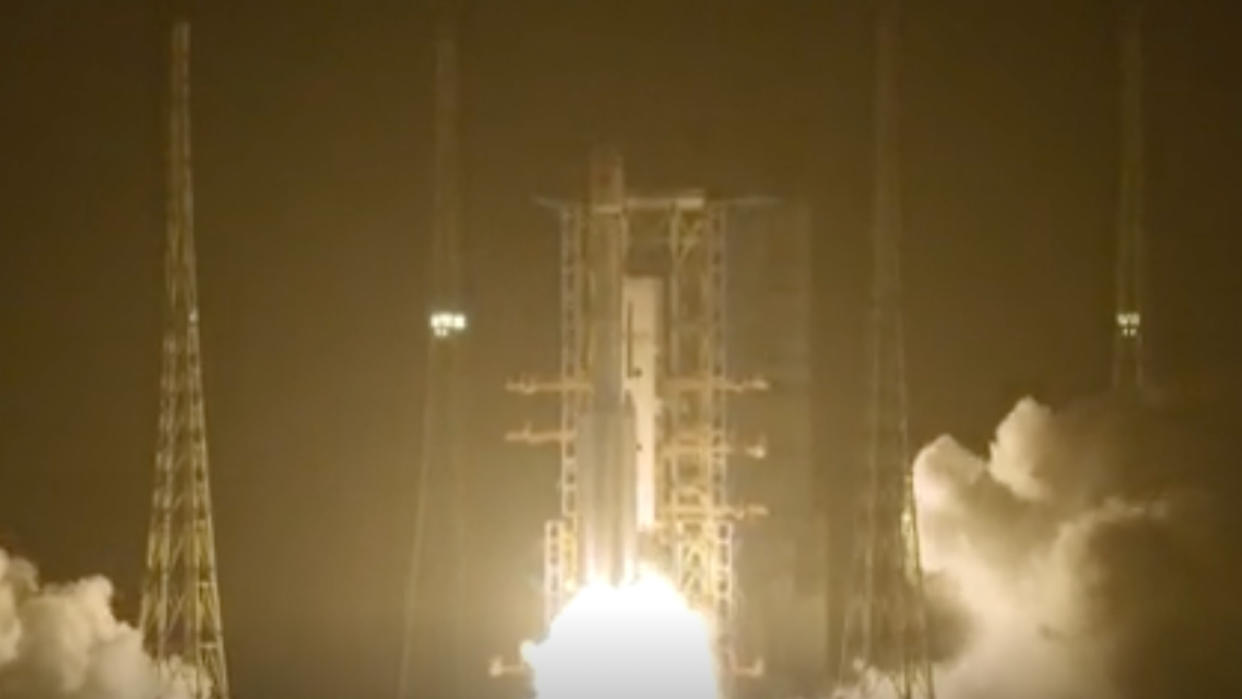China launches communications satellite on 30th mission of the year (video)

China just boosted its geostationary communications satellite fleet.
A Long March 7A rocket lifted off from the coastal Wenchang Satellite Launch Center on Hainan island at 7:57 a.m. EDT (1157 GMT, or 7:57 p.m. Beijing time) on June 29. The China Aerospace Science and Technology Corporation (CASC), the country's main space contractor, declared the mission a complete success.
The payload, called ChinaSat-3A (Zhongxing-3A), is destined for geostationary orbit, 22,236 miles (35,785 kilometers) above Earth. It is described briefly as a communication and broadcasting satellite, which will provide voice, data, radio and television transmission services, according to Chinese state media.

The satellite was designed by the China Academy of Space Technology (CAST), while the rocket was provided by the China Academy of Launch Vehicle Technology (CALT). Both are major CASC subsidiaries.
State-owned ChinaSat satellites provide communications for China for various purposes, including television broadcasting, telecommunications and broadband internet services. Some ChinaSat satellites are also thought to provide communications for China's military.
Most ChinaSat satellites have launched to geostationary transfer orbit (GTO) on Long March 3B rockets from Xichang, in south-central China. The Long March 7A is more capable; it can deliver 15,000 pounds (7,000 kilograms) to GTO, compared to 12,100 pounds (5,500 kg) for the Long March 3B. The 7A may be slowly replacing the older 3B or being used to launch a ChinaSat using larger DFH satellite bus than previous missions.
RELATED STORIES:
— China launches experimental satellite into polar orbit
— China launches mysterious Shiyan-20C satellite to orbit (video)
— A Chinese spacecraft has been checking out US satellites high above Earth
The June 29 launch was China's 30th of 2024. The country is planning around 100 launches this year, according to CASC, including approximately 30 missions conducted by commercial launch service providers.
One of these, Space Pioneer, aimed to launch its first Falcon 9-like Tianlong-3 rocket this year. However, the company suffered a disastrous, not-so-static hot fire test over the weekend, seeing an accidental launch that destroyed its intended flight hardware.
